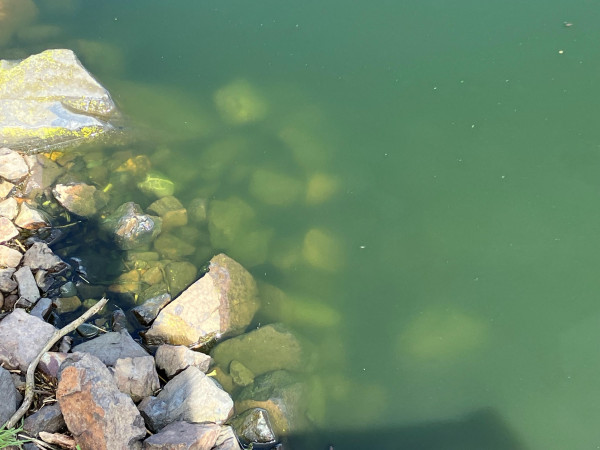Midge season approaches as temperatures rise
Christchurch City Council Newsline: 21st October 2025
Monitoring of midges at the Christchurch wastewater treatment plant is underway as temperatures start to rise for summer.
Midge numbers often increase when the weather gets warmer, with the oxidation ponds providing an ideal breeding ground – especially when algae levels increase.
“Managing odour and midge populations is a delicate balancing act. More algae typically means less odour, but it can also mean more midges,” Christchurch City Council Head of Three Waters Gavin Hutchison says.
Algae thrive in warmer conditions and serve as a primary food source for midges. Last summer’s heavy rainfall created perfect conditions for algae growth, which in turn led to a significant spike in midge numbers - much higher than in previous years.
 “This summer we are enhancing our midge monitoring efforts after seeking expert external advice to assess the impact of various control measures and to be sure of our decision-making,” Mr Hutchison says.
“This summer we are enhancing our midge monitoring efforts after seeking expert external advice to assess the impact of various control measures and to be sure of our decision-making,” Mr Hutchison says.
This includes trialling equipment that monitors pond water quality, which will be used to help make operational decisions. A dedicated PhD student will also be researching the ponds and midge numbers throughout the warmer months, enabling the Council to respond quickly and effectively.
The Council’s long-standing midge control programme involves native planting around the ponds. These plants help keep midges close to the ponds and away from nearby residential and commercial areas.
“Since 2018, we’ve planted approximately 100,000 native plants to support this initiative,” Mr Hutchison says.
Before the fire at the wastewater treatment plant, additional control methods such as dredging and flow path adjustments were used to help control midge populations.
Mr Hutchison says that while these methods are effective, they also carry risks.
“Disturbing the pond’s biology can lead to increased odour, which can take months to resolve – potentially even lasting until winter 2026. Our focus will always be prioritising approaches that maintain pond health while minimising both odour and midge impacts."